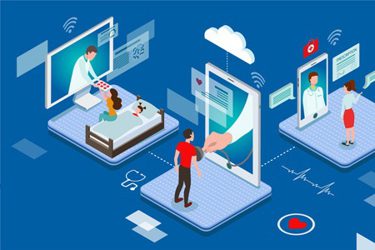Viktor Frankl, famed Psychiatrist and Holocaust survivor, is known for many quotations. Above all, is his quote that we must, “find meaning in suffering”. That to transcend any suffering, setback, or hardship in life, we must first search for meaning within whatever it is that is afflicting us. And in finding meaning, we can transcend what has transpired by understanding it in a way that allows us to evolve and develop from it.
So how shall we find meaning in COVID-19? All the suffering, mental anguish, emotional isolation, economic hardship – how shall we find meaning in this suffering?
We find meaning through understanding – by becoming more intelligent about our own health, by becoming more aware of healthcare policy. And through heightened intelligence and awareness, we can transcend all that is transpiring around us to find the proper meaning.
In more practical terms, we must become smarter patients. Amidst all the turmoil, vaccine speculation and the existential unknown of the next six months, all signs show that we have done just that – we have become smarter. Healthcare content online no longer caters to the ‘top ten’ this or ‘five most’ that. Instead, we find an abundance of healthcare content critically analyzing the healthcare landscape and our place within it.
And if there is one way to transcend COVID-19 by finding meaning, it through a better understanding of our own health. We view health as a story, and our health is one of the most intimate stories in our lives.
Narratives give us perspective, as sociologist Studs Terkel noted decades ago when he chronicled the lives of hardworking Americans, sharing in their daily humiliations, putting a face to a job title, and shedding light to the inner angst ordinary men and women felt. Narratives help us develop new ways of thinking, which should be the goal of each patient encounter – to build upon clinical relationships and to add to the growing narrative.
In that sense, a patient encounter is really a stream of narratives, built over time, encounter by encounter, ongoing in real time. The clinical relationships build upon different interpretations and perceptions that the provider and patient develop over the course of the time.
Since COVID-19 has come, the public has increasingly sought more sophisticated healthcare content to expand upon this narrative and drive a more meaningful relationship.
Before we use to view healthcare content online through lists and other simplified mediums that provided mostly click-bait content. Now, publicly available healthcare content on COVID-19 shares data from clinical studies in near real-time – giving the public access to data never before so readily available.
And we digest it, we absorb it and integrate what we read into our daily lives.
Data then should be viewed as part of the narrative, and we should understand how data is perceived and subsequently interpreted within the context of clinical relationships. How we think about something influences what we think about it – and everything, from complex medical conditions, to the essence of language itself, are understood through our existing and newly forming interpretations.
Entire books are written around a singular word, such as Epstein’s ‘Charm’ or Nicholas Baker’s ‘Lumbar’, focus as much on the author’s relationship and interpretation of the word, as the history of the word itself. And rightfully so – we form associations with words that are then reinforced by speech patterns that come from our thought patterns. Or, as Albert Ellis quipped – “how we think, we talk” – as the thought patterns create our interpretations, they influence our communication. And the flow of conversation mirrors the flow of thoughts.
During COVID-19, the relationship shifted to the point that patients, essentially the public, have considered online healthcare content as the principal repository of knowledge on COVID-19 – creating a veritable conversation between the patient and the healthcare content.
And this is the strongest sign that COVID-19 has made us smarter as patients. We crave a deeper understanding in the healthcare content we consume. We have invested more time as consumers into better quality content – and knowing that we can understand it at a deeper, more complex level. So that we can be better informed as patients.
What we pursue as consumers online reflects as healthcare content that we read and value as patients. And over the course of the pandemic, COVID-19 changed our behavior as consumers, leading us to search for healthcare content that helps us better understand the pandemic as patients. But in selecting better researched, better quality healthcare content, we became more educated as both consumers and patients.
We did not become more intelligent because of the pandemic, we became more intelligent because of we chose to find meaning in the pandemic.
And hopefully, we remain as deeply connected to our health post-pandemic – and continue to prioritize high-quality healthcare content that reflects a deeper relationship with our health.















